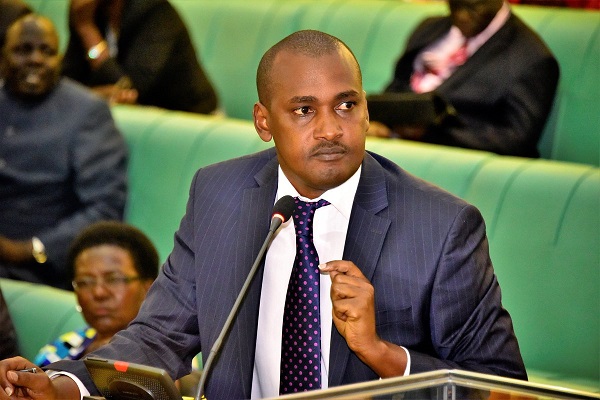In what appears like the last hours for airtime scratch cards, ICT Minister Frank Tumwebze has defended the migration from paper airtime to electronic recharge. Following the Speaker of Parliament Rebecca Kadaga’s ruling made last week in response to a matter raised by Busiki County MP, Paul Akamb, Tuwebaze has given his side, saying the shift in the trade of airtime is good for business.
Tumwebaze said that airtime scratch cards lead to a high cost to the provision of communication services in Uganda, explaining that it involves the cost of manufacture, importation, and distribution which increases the overall cost of doing business.
“The paper scratch cards are manufactured outside Uganda, and add onto our importation bill thereby facilitating capital flight,” he submitted to legislators on Tuesday.
According to him, fake airtime scratch cards have been used to defraud members of the public. He urged MPs to embrace electronic recharge systems, saying that the system has improved the process of directly tracing vendors and eventually their customers who procure airtime electronically.
“Vendors who have been selling the paper version of airtime scratch cards have been given the opportunity to sell the same airtime in a digital format using an ordinary phone as a tool of trade, and have been duly registered by the telecom operators,” Tumweaze went on.
Must read: After scratch cards ban, here are other means of buying airtime
However, Mr Akamba insisted that the ban on the sale and use of airtime scratch cards be pushed on until the necessary arrangements are in place that will enable the use of e-loading of airtime. He also advised the ICT minister not to front security as the main reason for banning paper airtime.
Akamba tasked Tuwebaze to explain how much insecurity is as a result of airtime scratch cards. Mr Pentagon Kamusiime representing Butemba County backed Mr Akamba, telling MPs that the public is not happy with Parliament.
“Let us take time and discuss the ban on airtime scratch cards in a way that will ensure easy access to airtime by members of the public,” he said.
Annet Nyakecho of Tororo North said that it is very important that the ICT ministry takes up public sensitization seriously, arguing that embracing technology is never easy: “When we were moving from analog to digital TVs it was not easy even here at Parliament.”
But the ICT minister maintained his stance, further urging the lawmakers to embrace these technology advancements and not resist them. “If you resist technology it will disrupt you,” he said.
“Just like in the past we all relied on postal mail and fax for transmission (Quasi manual-digital), technology led us to communicate by email and other electronic platforms. Continuous technological advancement will further lead to other digital migrations in the way we conduct business.”
In an earlier notice issued on March 23, UCC banned the sale of airtime scratch cards, however, the reasons given to back the ban were not convincing enough, earning wide-ranging criticism from some analysts.
The ban followed the murder of Susan Magara, who had been kidnapped for almost 27 days. UCC claimed that criminals were using a lax in the registration of sim-cards and the open selling of airtime to propagate criminality.
UCC has directed telecommunications companies to halt the use of scratch cards effective July 31.
Related:
How UCC, telcos struck deal to ban airtime scratch cards
Airtime scratch card ban: Govt cautioned on financial exclusion

